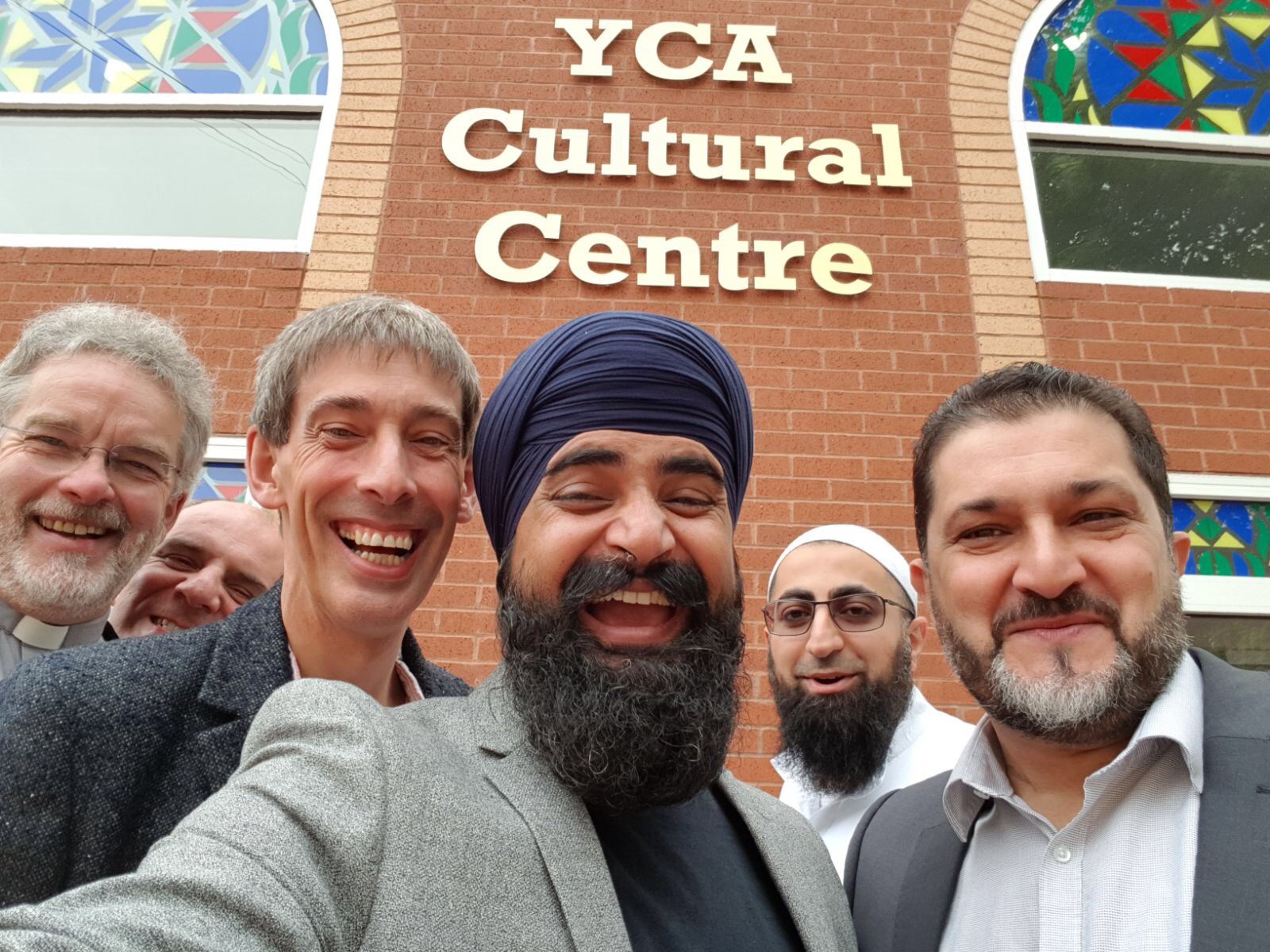by Canon Dr Andrew Smith
‘So, remind me why we’re driving to Cornwall in a minibus to look at a muddy field …’
An obvious comment when you’re in a minibus heading down the M5 in the rain. The answer from the vicar might not be the one most people expect, ‘It’s my special place, the pace where the Christian faith became real for me’. The ‘Faithful Friends’ were on tour and heading to Cornwall to visit a field, and in so doing to enter into a new type of dialogue. A dialogue that uses places to open up conversation and reveal new insights into the faith, beliefs and lives of others.
Let’s rewind to the beginning to explain this idea …
In 2016 the vicar of Holy Trinity Smethwick, David Gould, invited a few local people of different faiths for a meal to get to know one another and talk about issues facing people in the area. The group included Nick, the curate from the church, Nasir a local Imam, Ragih the CEO of a Yemini Community Centre, Gary a local counsellor and Sukhwinder a Sikh prison chaplain. I was also invited as in my role as Interfaith Director for the Bishop of Birmingham. Over the past few years I’ve been focussing time in the Smethwick areas and wanted to support this interesting initiative.
Following that initial meeting we continued to meet, and friendships grew over time. At one meal stories were being told of visits to different places and particularly places of special meaning such as Mecca and Amritsar. It was recognised that we all had places that had special meaning to each of us and the idea was mooted that it would be interesting if we each took the whole group to the place that was special to each of us and use that to tell part of our story of faith and life. From there the idea of the project Faithful Friends: On Tour was born.

The concept is delightfully simple. A group of friends of different faiths each suggest a place that has had a special meaning for them at some point in their lives and they take the group there to visit and whilst they are there they explain it’s significance and invite the group to explore the place and it’s meaning. It’s the first time I’ve used place as a catalyst for dialogue and it has been both hugely enjoyable and surprisingly profound.
In the first instance the choosing a place encourages people to reflect on their life and journey and to select a place that has been special. For some this was easy for others there was less confidence as to whether the place was ‘good enough’ or ‘profound enough’. We made it clear that wherever people chose was the right place it was for them to choose without judgement from the rest of the group. People chose a variety of locations from places of worship, to work places and rural locations.
Being a host gave people chance to share their place but also to see it through the eyes of visitors, perhaps for the first time. The fact that others were willing to give time to visit was affirming to the host and valued them and their story. Being host, could also be quite vulnerable, offering to tell part of your own story leaves you exposed, and trusting that people will respect it and you. Forming the project around a group of friends doesn’t diminish the vulnerability but strengthened the friendships as people affirmed the stories and experiences of each other.
Being in a place opened up conversations that wouldn’t have happened if we’d just described them. The sights, sounds and smells evoke questions and comments that can only come by being present. The places don’t have to be architecturally or historically important for the visit to be significant. One of our most profound discussions was in a 1960’s non-descript church on a housing estate in one of the poorer parts of Birmingham. It was the story of what happened there and how it impacted the person that made the visit so special.
Finally, the journeys gave time for deeper conversations. Sitting in a minibus for several hours gave opportunity for some deep conversations, not always on topics that we agreed on, but as the relationships deepened so we were able to discuss topics that might otherwise have caused conflict.
Dialogue is often framed around texts, contemporary issues or acts of service, all of which can lead to good conversation. The idea developed through the Faithful Friends: On Tour is another methodology that opens up different perspectives and opportunities for dialogue. Through its non-judgemental use of personal story and experience it enables people from all backgrounds to participate fully and enter into deeper friendships.
